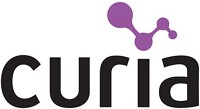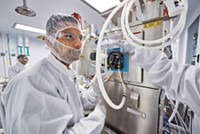Advertisement
Grab your lab coat. Let's get started
Welcome!
Welcome!
Create an account below to get 6 C&EN articles per month, receive newsletters and more - all free.
It seems this is your first time logging in online. Please enter the following information to continue.
As an ACS member you automatically get access to this site. All we need is few more details to create your reading experience.
Not you? Sign in with a different account.
Not you? Sign in with a different account.
ERROR 1
ERROR 1
ERROR 2
ERROR 2
ERROR 2
ERROR 2
ERROR 2
Password and Confirm password must match.
If you have an ACS member number, please enter it here so we can link this account to your membership. (optional)
ERROR 2
ACS values your privacy. By submitting your information, you are gaining access to C&EN and subscribing to our weekly newsletter. We use the information you provide to make your reading experience better, and we will never sell your data to third party members.
Pharmaceuticals
Resilience puts $30 million into partnership with Harvard
Ambitious start-up backs university research into breakthrough therapies
by Rick Mullin
October 20, 2021
| A version of this story appeared in
Volume 99, Issue 39

National Resilience, a company launched last year to advance disruptive technologies in drug manufacturing, is widening its mandate. It has signed a 5-year R&D partnership with Harvard University to develop novel biologics, vaccines, cell and gene therapies, and other complex medicines.
A $30 million investment from Resilience will fund faculty research, coordinated by the university’s office of technology development, into therapeutic and manufacturing technologies with an eye toward clinical development and commercialization.
The partners claim to have identified one technology to culture millions of in vitro cells that behave like skeletal muscle stem cells for the treatment of skeletal muscle disorders. Resilience has formed a company, Circle Therapeutics, to license the technology, which was developed in the lab of Lee Rubin, a professor of stem cell and regenerative biology at Harvard.
Resilience debuted last November as a venture-backed start-up with $800 million in the bank and a roster of drug industry luminaries in its corner. Industry watchers initially viewed Resilience as a contract development and manufacturing organization (CDMO), a perception sustained by the firm’s acquisition of several manufacturing operations, including Therapure BioPharma in Ontario, Ology Bioservices in Florida, and a Sanofi plant near Boston.
The deal with Harvard, however, encompasses drug research as well as manufacturing. It bears some resemblance to recent investments in cell and gene therapy by new service companies like ElevateBio and The Discovery Labs.
Consultant Wayne Weiner says the partnership between Resilience and Harvard is a “high-profile and important deal” with the potential to jump-start new technologies in biologics and cell and gene therapies. “The deal is reminiscent of the one between Novartis and MIT to develop advanced manufacturing technologies (mainly continuous processing),” Weiner says in an e-mail.
Peter Bigelow, another consultant, says Resilience’s aim of developing unique capabilities could give the company a competitive edge, but it comes with risk, as the drug industry is slow to pick up on new techniques. Moreover, the new business model contrasts with the CDMO approach the company has invested in building.
“I worry that the reality of operating a large-scale CDMO business may be a hurdle, and the dream of being this hugely disruptive, innovative player may get in the way of the driving short- to mid-term business imperatives,” Bigelow says in an e-mail.





Join the conversation
Contact the reporter
Submit a Letter to the Editor for publication
Engage with us on Twitter